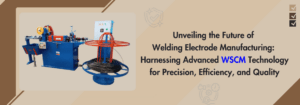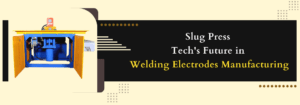Welding is a cornerstone of manufacturing, especially in industries like aerospace and defense, where precision, reliability, and durability are paramount. In these sectors, the materials used and the methods applied are subject to rigorous standards to ensure that the final products can withstand extreme conditions. A critical component in this process is the welding electrode. This article will explore the role of welding electrodes in the aerospace and defense sectors, shedding light on their types, applications, and the unique challenges they address.
What Are Welding Electrodes?
Welding electrodes are essential in the welding process, serving as the medium through which an electric current passes, creating the heat needed to join materials together. They can be consumable or non-consumable, depending on whether they melt during the welding process. The choice of electrode can significantly impact the quality and properties of the weld, making it crucial to select the right type for specific applications.
Importance of Welding Electrodes in Aerospace and Defense
In the aerospace and defense industries, welding is not just a method of joining materials; it’s a process that must ensure the integrity and safety of critical components. Welding electrodes used in these sectors must meet stringent requirements, as any failure could lead to catastrophic consequences. For example, aircraft and military vehicles are often exposed to extreme temperatures, high pressures, and corrosive environments, all of which require welds that can endure these conditions without compromising performance.
Types of Welding Electrodes Used in Aerospace and Defense
Tungsten Electrodes
Tungsten electrodes are widely used in Tungsten Inert Gas (TIG) welding, a process known for producing high-quality welds with minimal impurities. Tungsten’s high melting point makes it ideal for welding critical components in aerospace applications, where precision and cleanliness are essential. This type of welding is often used for thin materials like aluminum and stainless steel, common in aircraft construction.
Nickel Alloy Electrodes
Nickel alloy electrodes are preferred for welding materials that require excellent resistance to corrosion and heat. These electrodes are commonly used in the defense sector for welding components that must withstand harsh environmental conditions, such as those found in naval vessels and military aircraft.
Stainless Steel Electrodes
Stainless steel electrodes are crucial in applications where both corrosion resistance and strength are required. In the aerospace sector, these electrodes are often used for welding engine components, exhaust systems, and other parts exposed to high temperatures and corrosive gases.
Aluminium Electrodes
Aluminium welding is a significant part of the aerospace industry, given the metal’s widespread use due to its lightweight and strength. Aluminium electrodes are specially designed to provide strong, reliable welds in aluminium parts, making them indispensable in aircraft manufacturing.
Low Hydrogen Electrodes
Low hydrogen electrodes are essential for preventing cracking in welds, especially in high-stress environments like those found in defense applications. These electrodes reduce the risk of hydrogen-induced cracking, which can compromise the structural integrity of critical components.
Challenges in Welding for Aerospace and Defense

Stringent Quality Standards
The aerospace and defense sectors operate under some of the strictest quality standards in the world. Welds must be flawless, with no room for defects that could lead to failures. This requires not only high-quality electrodes but also skilled welders who can meet these rigorous demands.
Complex Materials
Aerospace and defense applications often involve welding complex materials, including advanced alloys and composites. These materials require specialized welding techniques and electrodes that can handle their unique properties without compromising the integrity of the weld.
Environmental Considerations
Components in these sectors are often exposed to extreme environments, including high altitudes, deep-sea conditions, and the vacuum of space. Welding electrodes used in these applications must produce welds that can withstand these harsh conditions over long periods.
The Role of Technology in Advancing Welding Electrode Performance
Innovations in Electrode Coatings
Coatings on welding electrodes play a crucial role in determining the quality and characteristics of the weld. Recent advancements in electrode coatings have focused on improving arc stability, reducing spatter, and enhancing the mechanical properties of the weld. These innovations are particularly important in aerospace and defense, where even minor improvements can lead to significant gains in performance and safety.
Automation and Precision Welding
The use of automation in welding processes is growing, especially in industries like aerospace and defense, where precision is key. Automated welding systems can use advanced electrodes to perform highly accurate welds, reducing the risk of human error and increasing the overall quality of the final product.
Non-Destructive Testing and Quality Assurance
In the aerospace and defense sectors, every weld must undergo rigorous testing to ensure it meets the required standards. Non-destructive testing (NDT) techniques, such as ultrasonic and radiographic testing, are used to inspect welds without damaging them. The choice of electrode can influence the ease and accuracy of these tests, making it an important consideration in the welding process.
Applications of Welding Electrodes in Aerospace and Defense
Aircraft Manufacturing

Welding electrodes are extensively used in the manufacturing of aircraft, including the fuselage, wings, and engine components. The choice of electrode can affect everything from the weight of the aircraft to its fuel efficiency and safety.
Military Vehicles
In the defense sector, welding is used in the production of military vehicles, including tanks, armored personnel carriers, and naval vessels. The durability and strength of these vehicles depend heavily on the quality of the welds, which are often subjected to extreme conditions in the field.
Welding electrodes play a vital role in the aerospace and defense sectors, where the quality, reliability, and durability of welds are non-negotiable. From aircraft and military vehicles to spacecraft, the materials and methods used in welding must meet the highest standards to ensure safety and performance. As technology continues to advance, so too will the capabilities of welding electrodes, driving innovation and improving outcomes in these critical industries.






